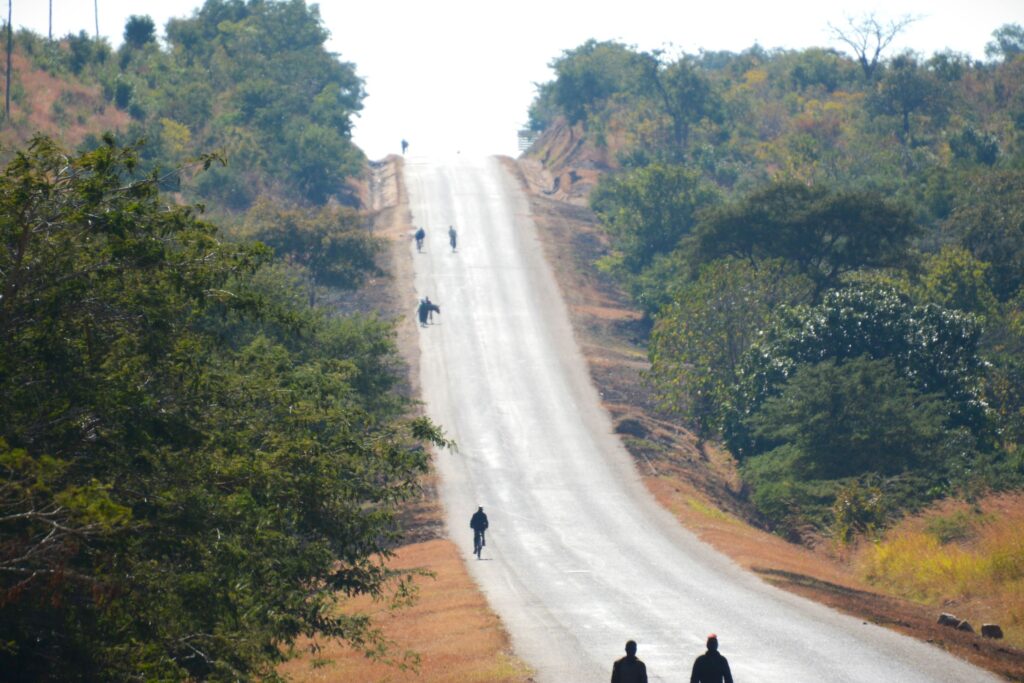by
Mwizenge S. Tembo, Ph. D,
Emeritus Professor of Sociology
Author of the Internationally Acclaimed Romantic Novel: “The Bridge”
President Kenneth Kaunda was young. Simon Mwansa Kapwepwe was young. Munukayumbwa Sipalo was young. Peter Matoka was young. Julia Chikamoneka was young. Chibesa Kankasa was young. Mutumba Mainga Bull was young. Chieftainess Nkomesha was young. All the chiefs in Zambia were young. The hills, the forest, and the trees in Zambia were young. Cairo Road in Lusaka was young. The Zambezi River, the Luangwa River, and the Kafue River were young. My parents were young. My three brothers and six sisters were young. My uncles and my aunts were young. All my friends were young. Zambia was young. The University of Zambia was young. I was young.
My father was a teacher at Kasonjola Primary School in Chief Mkanda’s area north of rural Eastern Province of Zambia along the Chipata Lundazi road. We were living in a small five room teacher’s brick house built in all rural primary schools just after Zambia’s independence from British colonialism in 1964 at the beginning of the sleeping Zambia’s more than twenty-five years of spectacular leap in development and social change.

This is what we always did as a family after supper. This one August evening we sat in our tiny living room on wooden chairs around the dining room table chatting for hours. The younger siblings would already be sleeping having slumped over on the floor in the dark. Something totally unexpected and unusual happened that night.
My father emerged from the bedroom carrying a paraffin hurricane lamp which he had just lit because we were trying to save the paraffin. We often only lit the paraffin lamp if we really thought it was necessary. Some nights we ate dinner outside and chatted in the bright beautiful moon light. My father placed the flickering orange light hurricane lamp in the middle of the table.
“Mwizenge,” my father said sitting down. “After tomorrow we are travelling to Kitwe to the Copperbelt to visit your uncles, aunts, and cousins.”
My eyes popped out as I grinned from ear to ear. The darkness in the room was suddenly bright. I was frozen and speechless with shock.
“Mwanyithu muluta ku walale ku Kitwe na awisemwe, (you our friend are going to Kitwe and line of rail with your father)” my mother added fuel to my excitement and imagination as she
must have seen my wide grin and popping twinkling eyes of sheer rare joyful moment.
“Your mother will help you tomorrow wash the clothes you will be taking with you,” my father said as we all dispersed to go to bed in our rooms.
That night was torture as I could not sleep from sheer excitement and imagination. When I was young living in the village, I had heard so much about Lusaka, Broken Hill (Kabwe), and Kitwe in the then Northern Rhodesia from my uncles who had gone there to work. Some uncles had gone far away to Salisbury (Harare) in Southern Rhodesia (Zimbabwe), Johannesburg and Cape town in South Africa. They had exciting experiences and stories but also warned of the dangers of matsotsi or crooks, conmen, and criminals in the cities. There were too many cars, road car accidents, and it was dangerous, the delicious new European or (white man) town foods, and then there was the romance of the train. As I finally drifted to sleep, I wished the journey was right there and then. I did not want to endure one more whole day of torture waiting for this greatest trip of my young life.
On the day of departure, my father rode his bicycle carrying the one large suitcase which had our two blankets and some clothes. I was wearing shorts but barefoot which was common for boys and children my age in rural areas. My father was wearing his normal attire of shoes, pair of trousers, long sleeved shirt and a jacket.
I rode my mother’s bicycle. We arrived at the Molozi bus station at about 1600 hours and promptly rode a lift to Fort Jameson (Chipata) as it was late in the day and the United Bus Company (UBZ) from Lundazi to Chipata had already passed. Molozi was notorious because it had the steepest chikwela or slope on the gravel road on the Chipata Lundazi road. It was so steep that during the rain season we could hear from 5 miles or 8 Kms away at Kasonjola, trucks and buses painfully moaning up the hill. Many a vehicle simply broke down trying to climb the Molozi Hill.
We arrived in Chipata at Kapata Bus Station at 18:00 hours and reported at a guest house that charged each one of us six pence or six ngwee for the night. We laid down on the cement floor using half of the blanket to lie on and folding the other half as cover. We would be buying the ticket and boarding the Lusaka bus early in the morning.